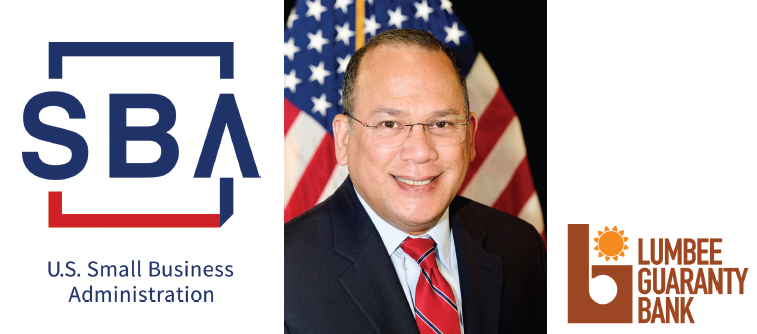
The Small Business Administration of North Carolina has been stimulating the state's economy one loan at a time. Between 2021-2023 the SBA distributed nearly $3 billion in loans to small businesses within the state.
SBA District Director Mike Arriola provided more insight on the way the administration has been able to create this reality in NC. Arriola has been working in the NC district of the SBA for 19 years and when asked, shared how he viewed the success of this time versus previous years. Arriola said NC is certainly in a “peak time” with three years of progress including:
Cumberland, Hoke and Sampson Counties have received a combined total of $41 million in the last two years from the SBA.
In 2022 a combined total of 21 small business loans were given in Cumberland and Hoke Counties in the amount of $16 million.
Cumberland, Sampson and Hoke County have continued benefiting from the SBA’s programs.
In 2023, the SBA awarded 33 loans totalling $25 million in Cumberland and Sampson County, with Cumberland County being granted 29 loans and Sampson County receiving four.
The SBA partners with banks across the state to help distribute loans. Pembroke’s own Lumbee Guaranty Bank is one of the lenders the SBA has partnered with in their loan distribution efforts.
The most common loans distributed by the SBA include the 7(a) loans and 504 loans.
The 7(a) loan grants up to $5 million to small businesses and can be used to purchase, update or refinance real estate and buildings. The grant also assists people with changing levels of ownership, handling capital, acquiring and installing equipment and furniture.
IN ORDER TO OBTAIN A 7(A) LOAN BUSINESSES MUST:
- Be a for-profit U.S. based operating business
- Be considered a small business under SBA standards
- Be unable to qualify for loans under non governmental avenues
Businesses must also demonstrate the ability to repay the loan received from the SBA.
Another commonly utilized finance tool is the 504 loan. 504 loans can be used to purchase land, build buildings, update construction, buy long-term machinery, improve land, streets, parking lots and landscaping.
Most small businesses will be able to obtain up to $5.5 million from the SBA through a 504 loan, however, energy based small businesses can receive up to $5.5 million for up to three projects not exceeding $16.5 million in loan amounts.
BUSINESSES ELIGIBLE TO RECEIVE A 504 LOAN MUST:
- Be operating for profit
- Based in the U.S. or its possession
- Have a net worth under $15 million
- Have an average net income under $5 million post federal income taxes in the two years before submitting the loan application
The business must meet the SBA size requirements, have qualified management expertise, be able to present a logical business plan and demonstrate the ability to repay the loan.
Businesses that receive a 504 loan must not be engaged in non-profit, passive or speculative activities. Arriolla also added that there are a few gems within the SBA that he feels are under utilized; including microloans and the community advantage programs.
The microloan program allows small business owners to receive a loan for up to $50,000.
The microloan can be used for machinery, equipment, furniture, supplies and working capital. However, it cannot be used to clear current debts or buy real estate.
He also added the community advantage program as an underutilized resource. The community advantage program was created so that small businesses located in underserved communities could receive loans. In the community advantage program, companies identified as mission based lenders, partner with local companies to provide loans.
Arriola recommended using the following lenders in our state: Mountain BizWorks, Carolina Community Impact and Carolina Business Capital. Mountain Bizworks and Carolina Community Impact are mission based lenders that offer community advantage and microloans to businesses in NC. Carolina Business Capital offers 7(a) and 504 loans.
Counties across the GFBJ’s business area have greatly benefited from the SBA’s loan programs.
____________________________
Log on to www.sba.gov/funding-programs/ loans to find the perfect funding solution for your small business.

Mike BerkMike Berk is still getting settled into his new office and home, but his enthusiasm for his new role as CEO of Longleaf Pine REALTORS® is already in full swing. Just a few weeks into the job, the association management veteran sat down with